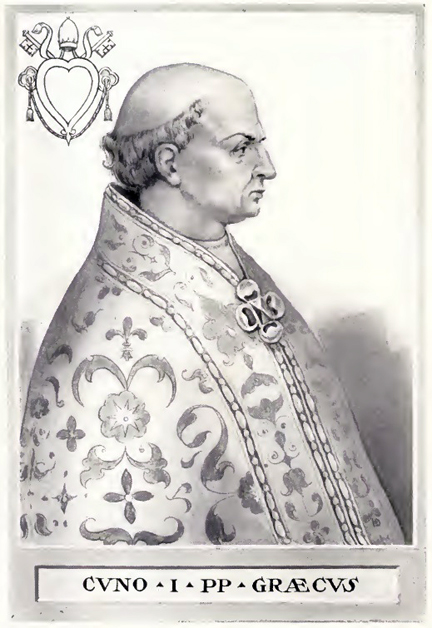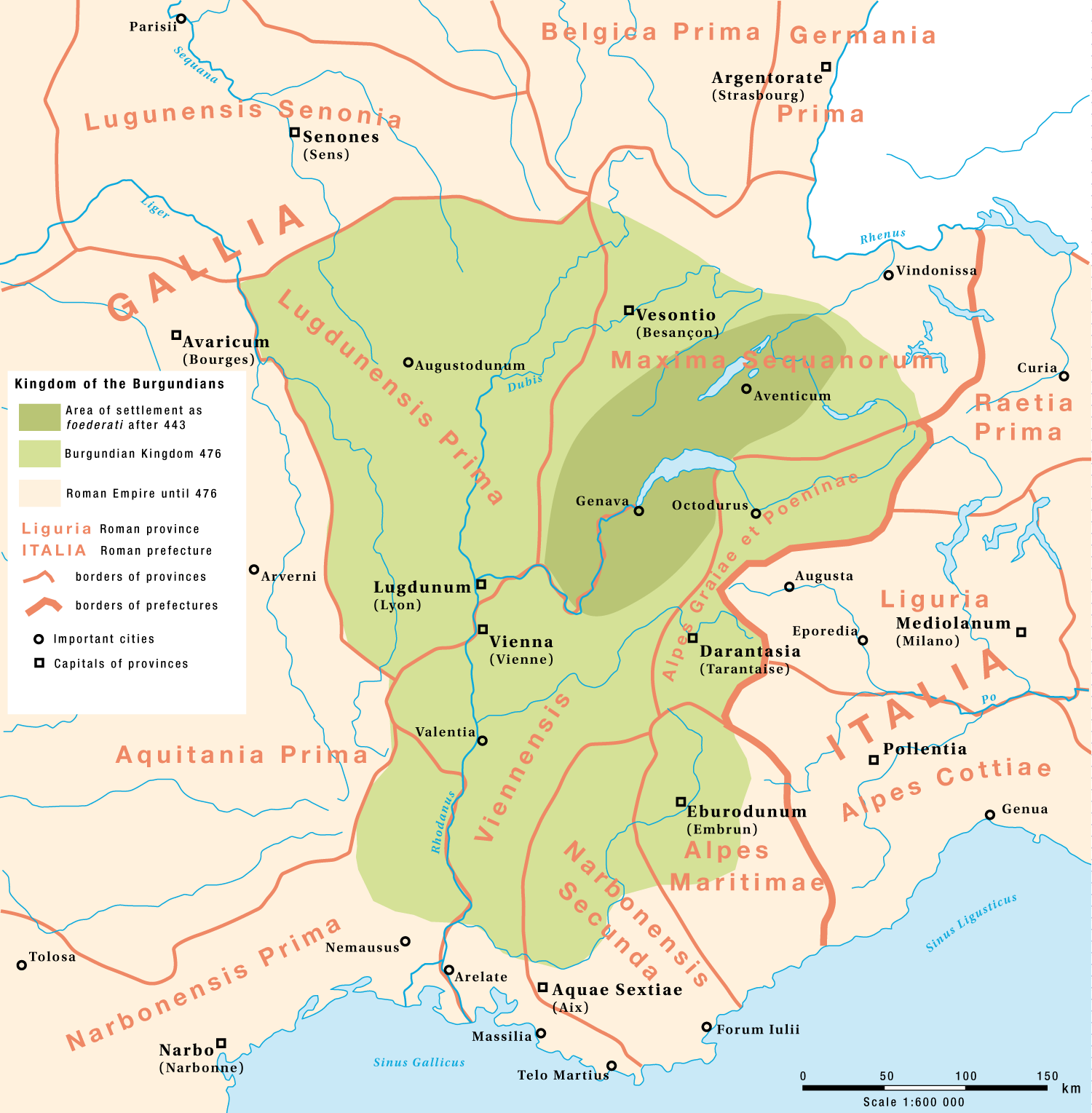|
Waratto
Waratto (died 686) was the mayor of the palace of Neustria and Burgundy on two occasions, owing to the deposition he experienced at the hands of his own faithless son. His first term lasted from 680 or 681 (the death of Ebroin) to 682, when his son Gistemar (or Ghislemar) deposed him and took over the office. However, Waratton soon reestablished himself and continued to reign until his death in 684 or 686. He made peace between the three Frankish kingdoms and with Pepin of Heristal in 681. His daughter Anstrude later married Duke Drogo of Champagne, Pepin's eldest son. He married Ansflede and had the two aforementioned children: *Gistemar (d. 684), mayor of the palace of Neustria and Burgundy (682) *Anstrude, married firstly Berchar Berchar (also Berthar) was the mayor of the palace of Neustria and Kingdom of Burgundy, Burgundy from 686 to 688/689. He was the successor of Waratton, whose daughter Anstrude he had married. Unlike Waratton, however, Berthar did not keep peace ... [...More Info...] [...Related Items...] OR: [Wikipedia] [Google] [Baidu] |
Gistemar
Gistemar, Ghislemar, or Gilmer (died in the 680s) was briefly the mayor of the palace in Neustria and Kingdom of Burgundy, Burgundy after deposing his father Waratton in 682. He reversed the peace with Austrasia of his father and warred with Pepin of Heristal, overcoming him in Namur (city), Namur. He reigned thereafter briefly and Waratton soon fought himself back into his office. However Gistemar did not give it up easily and continued to contend for the title until his death, before his father, in 683, 684, or 686. His mother was Ansflede. 680s deaths Mayors of the Palace Year of birth unknown {{Europe-noble-stub ... [...More Info...] [...Related Items...] OR: [Wikipedia] [Google] [Baidu] |
Berchar
Berchar (also Berthar) was the mayor of the palace of Neustria and Kingdom of Burgundy, Burgundy from 686 to 688/689. He was the successor of Waratton, whose daughter Anstrude he had married. Unlike Waratton, however, Berthar did not keep peace with Pepin of Heristal. In 687, Pepin defeated him and Theuderic III at Tertry, Somme, Tertry in the Vermandois. Many fled to the nearby abbeys of Péronne, Somme, Péronne and Saint-Quentin, Aisne, Saint-Quentin. Berthar and Theuderic III withdrew themselves to Paris. Pepin followed them and eventually forced a peace treaty with the condition that Berthar leave his office. In the ensuing quarrels, Berthar was killed by his mother-in-law Ansfled. His widow married Pepin's eldest son Drogo of Champagne, Drogo, duke of Champagne (province), Champagne, and Pepin became the mayor of the palace of Neustria and Burgundy without opposition. Berthar died in either the Autumn of 688 or early 689. 680s deaths Mayors of the Palace Year of bir ... [...More Info...] [...Related Items...] OR: [Wikipedia] [Google] [Baidu] |
Neustria
Neustria was the western part of the Kingdom of the Franks. Neustria included the land between the Loire and the Silva Carbonaria, approximately the north of present-day France, with Paris, Orléans, Tours, Soissons as its main cities. It later referred to the region between the Seine and the Loire rivers known as the ''regnum Neustriae'', a constituent subkingdom of the Carolingian Empire and then West Francia. The Carolingian kings also created a March of Neustria which was a frontier duchy against the Bretons and Vikings that lasted until the Capetian monarchy in the late 10th century, when the term was eclipsed as a European political or geographical term. Name The name ''Neustria'' is mostly explained as "new western land", although Taylor (1848) suggested the interpretation of "northeastern land". '' Nordisk familjebok'' (1913) even suggested "not the eastern land" (''icke östland''). Augustin Thierry (1825) assumed ''Neustria'' is simply a corruption of ''Westria'', fr ... [...More Info...] [...Related Items...] OR: [Wikipedia] [Google] [Baidu] |
Pepin Of Heristal
Pepin II (c. 635 – 16 December 714), commonly known as Pepin of Herstal, was a Frankish statesman and military leader who de facto ruled Francia as the Mayor of the Palace from 680 until his death. He took the title Duke and Prince of the Franks upon his conquest of all the Frankish realms. The son of the powerful Frankish statesman Ansegisel, Pepin worked to establish his family, the Pippinids, as the strongest in Francia. He became Mayor of the Palace in Austrasia in 680. Pepin subsequently embarked on several wars to expand his power. He united all the Frankish realms by the conquests of Neustria and Burgundy in 687. In foreign conflicts, Pepin increased the power of the Franks by his subjugation of the Alemanni, the Frisians, and the Franconians. He also began the process of evangelisation in Germany. Pepin's statesmanship was notable for the further diminution of Merovingian royal authority, and for the acceptance of the undisputed right to rule for his family. Therefor ... [...More Info...] [...Related Items...] OR: [Wikipedia] [Google] [Baidu] |
Drogo Of Champagne
Drogo (c.675 – 708) was a Frankish nobleman, the eldest son of Pippin of Heristal and Plectrudis. He was the duke of Champagne from the early 690s. Drogo was born shortly after his parents' marriage, which probably took place in 675 or just after. In the early 680s, Pippin arranged the marriage of Drogo with Anstrudis (or Adaltrudis), the daughter of Waratto, the mayor of the palace in Neustria, and his wife Ansfledis. The marriage took place toward the end of the decade or in the early 690s. Drogo and Anstrudis had four sons: Arnulf, who succeeded him as duke of Champagne; Hugh, who entered the church and rose to become an archbishop; Gotfrid; and Pippin. The marriage of Drogo and Anstrudis increased his father Pippin's influence in Neustria. Waratto's family properties were located mainly in the vicinity of Rouen. Drogo, however, was made duke in Champagne, a frontier region between Neustria and Austrasia. His power in Champagne was enhanced through his control of the monastery ... [...More Info...] [...Related Items...] OR: [Wikipedia] [Google] [Baidu] |
686 Deaths
__NOTOC__ Year 686 ( DCLXXXVI) was a common year starting on Monday (link will display the full calendar) of the Julian calendar. The denomination 686 for this year has been used since the early medieval period, when the Anno Domini calendar era became the prevalent method in Europe for naming years. Events By place Europe * Waratton, mayor of the palace of Neustria and Burgundy, dies and is succeeded by his son-in-law Berchar. He advises King Theuderic III to break the peace treaty with Pepin of Herstal, and declares war on Austrasia. Britain * King Cædwalla of Wessex establishes overlordship of Essex, and invades Kent for a second time. King Eadric is expelled, and Cædwalla's brother Mul is installed in his place. The sub-kings Berthun and Andhun are killed, and Sussex is subjugated by the West Saxons. * Cædwalla conquers Surrey, and tries to exterminate the Jutes of the Isle of Wight. He executes King Arwald and his two brothers. Cædwalla probably also ... [...More Info...] [...Related Items...] OR: [Wikipedia] [Google] [Baidu] |
Ebroin
Ebroin (died 680 or 681) was the Frankish mayor of the palace of Neustria on two occasions; firstly from 658 to his deposition in 673 and secondly from 675 to his death in 680 or 681. In a violent and despotic career, he strove to impose the authority of Neustria, which was under his control, over Burgundy and Austrasia. Life and career Following the failed coup of the Pippinid mayor Grimoald the Elder in Austrasia, the Merovingian court resided in Neustria. According to the ''Liber historiae Francorum'', during the reign of Chlothar III the mayor Erchinoald of Neustria died. In 659, a council of Franks elected Ebroin as his replacement. The Life of Saint Eligius records that as of the middle 670s Ebroin had only one child, a son named Bobo; Bobo was then convalescing from an illness contracted during his adolescence. Based on that, Bobo was likely born around 660. Queen Balthild of Chelles served as regent for her son Chlothar III. After a power struggle with Ebroin, she withd ... [...More Info...] [...Related Items...] OR: [Wikipedia] [Google] [Baidu] |
Kingdom Of Burgundy
Kingdom of Burgundy was a name given to various states located in Western Europe during the Middle Ages. The historical Burgundy correlates with the border area of France, Italy and Switzerland and includes the major modern cities of Geneva and Lyon. As a political entity, Burgundy existed in a number of forms with different boundaries, notably, when it was divided into Upper and Lower Burgundy and Provence. Two of the entities, the first around the 6th century and the second around the 11th century, were called the Kingdom of Burgundy. At other times were the Kingdom of Provence, the Duchy of Burgundy and the County of Burgundy. Kingdom of the Burgundians (411–534) Burgundy is named after a Germanic tribe of Burgundians who originated in mainland Scandinavia, then settled on the island of Bornholm, whose name in Old Norse was ''Burgundarholmr'' ("Island of the Burgundians"). From there they migrated south through Germanic lands into Roman Gaul and settled in the wester ... [...More Info...] [...Related Items...] OR: [Wikipedia] [Google] [Baidu] |
Franks
The Franks ( la, Franci or ) were a group of Germanic peoples whose name was first mentioned in 3rd-century Roman sources, and associated with tribes between the Lower Rhine and the Ems River, on the edge of the Roman Empire.H. Schutz: Tools, Weapons and Ornaments: Germanic Material Culture in Pre-Carolingian Central Europe, 400-750. BRILL, 2001, p.42. Later the term was associated with Romanized Germanic dynasties within the collapsing Western Roman Empire, who eventually commanded the whole region between the rivers Loire and Rhine. They imposed power over many other post-Roman kingdoms and Germanic peoples. Beginning with Charlemagne in 800, Frankish rulers were given recognition by the Catholic Church as successors to the old rulers of the Western Roman Empire. Although the Frankish name does not appear until the 3rd century, at least some of the original Frankish tribes had long been known to the Romans under their own names, both as allies providing soldiers, and as e ... [...More Info...] [...Related Items...] OR: [Wikipedia] [Google] [Baidu] |


